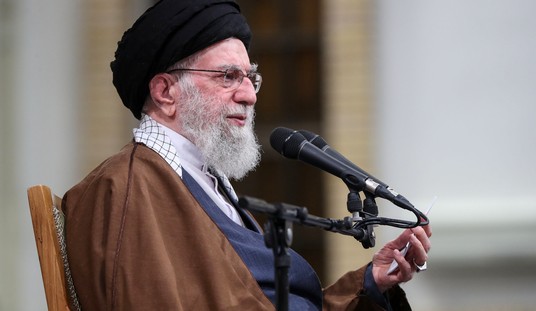The White House is not going to be pleased about this.
The “Nuclear Weapon Free Iran Act” is now supported by at least 54 senators in the 100-member chamber, according to a congressional record, with six senators joining on Wednesday. A Senate aide said two more joined on Thursday, bringing the total to 56.
It is uncertain whether the bill will be introduced in the Senate and whether backers can win the two-thirds majority to overcome a veto by President Barack Obama. A senior Senate Democratic aide said there were no plans yet for advancing the bill to the Senate floor, despite the growing list of co-sponsors. …
The aide said more support could come soon from the bloc of Democrats. “At least two that I know of are inching toward public support for the bill,” the aide said on condition of anonymity given the sensitivity of the talks. …
The bill seeks to cut Iran’s oil exports to zero two years after implementation. It also puts limits on the Obama administration’s ability to waive sanctions.
That still doesn’t bring the total up to the two-thirds majority the Senate would need to overcome the White House’s veto threat, but that brings the tally of Democrats supporting the measure up to at least 16 — despite the White House’s aggressive attempts to persuade the senators to drop the issue and just leave it to their own esteemed foreign-policy machinations. Jennifer Rubin at WaPo points out that the newfound participation of Sen. Michael Bennet, Democrat from Colorado and not normally an outspoken pro-Israel advocate, will put still more pressure on strident Democrats to break with the White House, especially if (let’s face it: when) Iran refuses to let up on their centrifugal intransigence and otherwise thwart the conditions of the interim agreement.
The talks between Iran and world powers resumed on Thursday, and no doubt they will continue to insist that even just the possibility of more sanctions being held over them will threaten their participation in the so-called deal. Their motivations for discouraging more sanctions at-all-costs are readily apparent:
Iranian oil exports hit a high in December, just one month after Western nations inked a nuclear pact with Iran that guaranteed up to $7 billion in economic sanctions relief.
Exports of Iranian crude oil rose from 789,292 barrels per day in November to 1,059,605 per day in December, according to new shipping data provided to the Washington Free Beacon by the advocacy group United Against Nuclear Iran (UANI). …
Some foreign policy experts worry that the interim nuclear deal reached between Iran and the West has reinvigorated the global markets and created a renewed demand for Tehran’s cheap—and heavily sanctioned—crude oil.








Join the conversation as a VIP Member